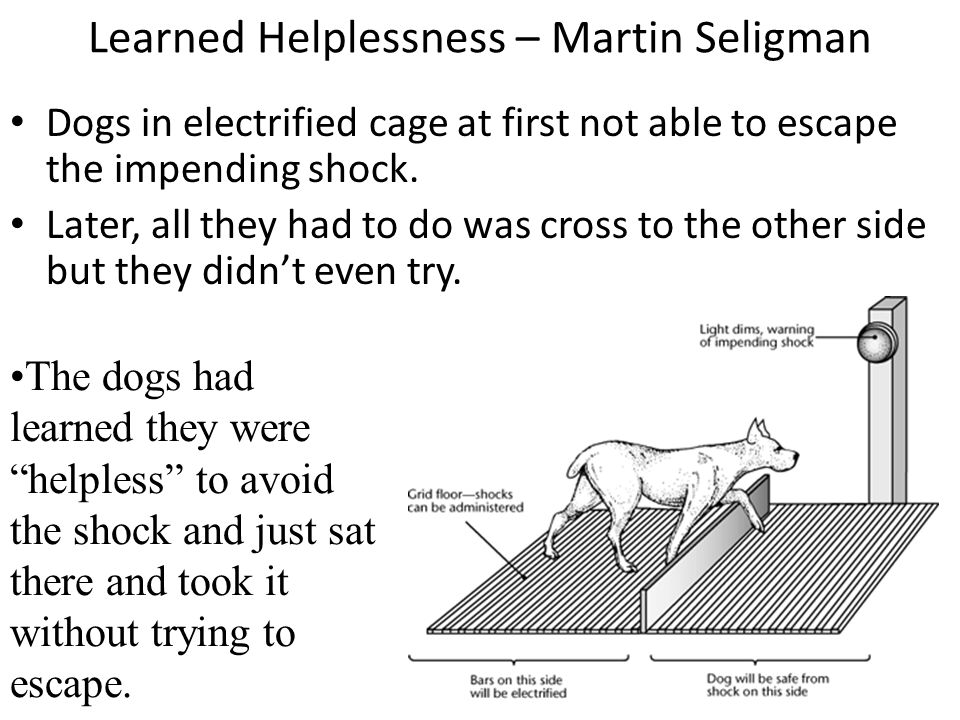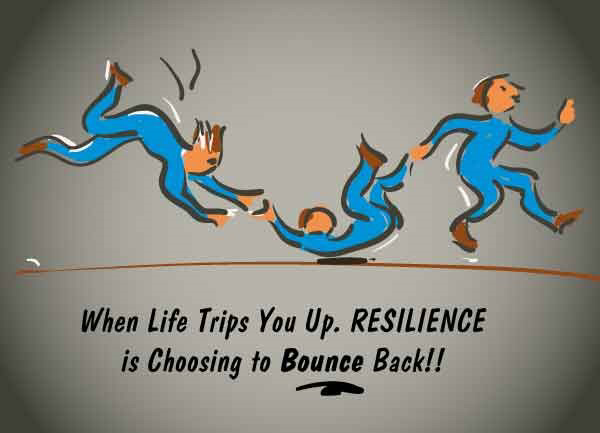|
14/1/2016 1 Comment Random, thoughts, readings and ramblings of a geeky therapist part 2: Learned HelplessnessYou made it to part 2 😁 thank you for coming back. So by now you should have some kind of understanding of what we do and why we are the way we are.... There are multiple factors that contribute to the way we respond and the way we are. This doesn’t necessary mean it’s a bad thing it just means how you are, what you do and how you or your client/patient has coped thus far has served a purpose. It’s got you or your client/ patient safely to this point, and now it may no longer be serving you. Remember, there is so much more to life than just training to look good etc. It’s about finding out your why, what does this mean to you. When you know yours or your clients/patients why then it becomes easier to find the right strategy to break those OLD hard wired patterns and instil new ones. More often than not as a coach, personal trainer, therapist we also need to recognise our own bias, triggers, thoughts, patterns and beliefs break them and learn to keep them in check. It is important if you are seeking change you need to find someone who cares and has your best interests at heart. It is also important as a therapist, coach or trainer to screen your patient, client appropriately and understand where they are and what they need. I guess what I am saying is in order to deal with patients / clients it is important to be equipped with more than just knowledge on exercise prescription for example treating low back pain or deal with weight loss or gain. I believe the missing link between each scenario boils down to many factors below is just a short list:
If you are your client, patient is not changing perhaps you need to go back and re-valuate your screening process. If you do not have:
For example let's consider the concept of learned helplessness. Learned helplessness is a phenomenon which was discovered in the 1967 by an American psychologist called Martin Seligman who conducted the controlled study, which was later expanded by Seligman and others. The dogs were exposed to repeated bouts of electric shocks who attempted to leave the cage they were in. When the dogs were unable to escape or avoid the painful experience, they quickly learned they were unable to control the situation and learned be helpless. How do dogs apply to humans? In its simplest terms when a person is exposed to repeated bouts of stress and they begin to feel a sense of loss, impending doom and helplessness. A person’s resilience will begin to waiver and they will quickly realise that they are unable to control what’s going on, unfortunately the only choice they see they are able to make is to learn to stop trying and give up. What makes it worse is the majority of the population even in this day and age shy away from admitting that they are stressed, lost or in need of emotional support and guidance. The acceptance is that’s life and you just learn to deal, the sad truth is as a result of this kind of attitude many will go on to suffer chronic long term stress related disorders such as reduced resilience, depression and anxiety. This is because their personal beliefs, attitudes and perceived absence of over control over the outcome of the situation they are in. Even with today's level of communication through advances in technology and free instant access to information that can help enhance our knowledge. It has still not been filtered down into mainstream society that those which are not nurtured or guided properly to understand how to deal with the uncontrollable stress life has to offer. They have learned from past traumatic experiences, (previous attempts at rescuing one’s self) that no matter what nothing will change no matter what one does, so giving up is inevitable, “I might as well stop now or not even bother trying, what’s the point right? It hasn’t worked before and will not work now”. In fact repeated bouts of acute stress if not dealt with appropriately will have a negative physical and psychological effect on a person’s quality of life and wellbeing. Is there a solution for this HELL YES, the vast amount of studies that have been conducted looking at the positive effects of exercise have all shown that exercise does help prevent the development of stress related mood disorders like depression and anxiety (Greenwood & Fleshner et al 2008). How and why well exercise actually increases the expression of a wide range of trophic factors throughout the brain, which are mediated by a large variety of neural and hormonal factors. In fact repeated consistent bouts of exercise actually helps produce anti-depressant effects especially with those who suffer from chronic depression. But hold on a minute, if studies have found that exercise is the way forward to beat depression along with better nutrition positive thinking and sleep. Then why are we not all doing exercising more? Or why am I still unhappy even tho I do exercise? Well this could be for a number of reasons, Seligman study also found that it took roughly 25 times to drag the dogs across the lower barrier away from the electric shocks into the pain free zone before the dogs themselves learned that there is a way out. What does this mean, to us? Recognising from early on what expectations they have and traits your clients carry, will help allow you to formulate a plan that’s suited to them with a real WHY attached to why they must be consistent with the protocol you have provided. This doesn’t mean it will always work but if you are able to recognise this as a coach, trainer and or therapist the above then I am 100% sure you have a plan B to then tackle why you, or your client / patient is falling off the band wagon. Remember, if as a coach/ trainer/therapist you are honest and authentic and show that you care with your clients will see this. No matter how bumpy the road maybe everything will fall into place if the time is right and the lesson has been learned.
1 Comment
Nice post Sevda. I'm glad I stumbled upon it 😉.
Reply
Your comment will be posted after it is approved.
Leave a Reply. |
AuthorSevda Onder |
Less than 10 years of post graduate physiotherapy experience.
£150 initial assessment
Physiotherapy 6/12 pack paid up front 15% off
Note I do offer low income slots for those who cannot afford my prices.
Please do not hesitate to reach out [email protected].



 RSS Feed
RSS Feed